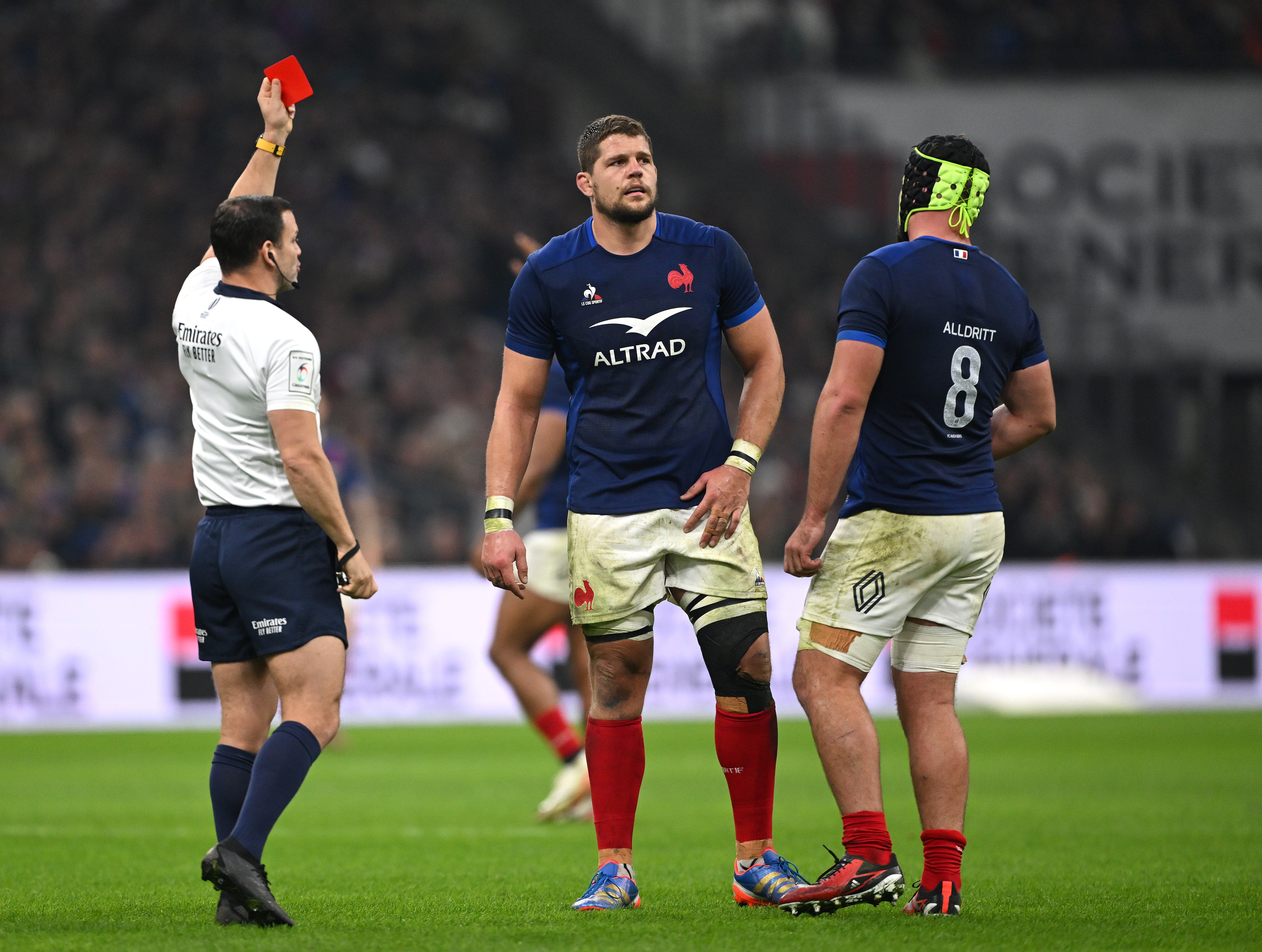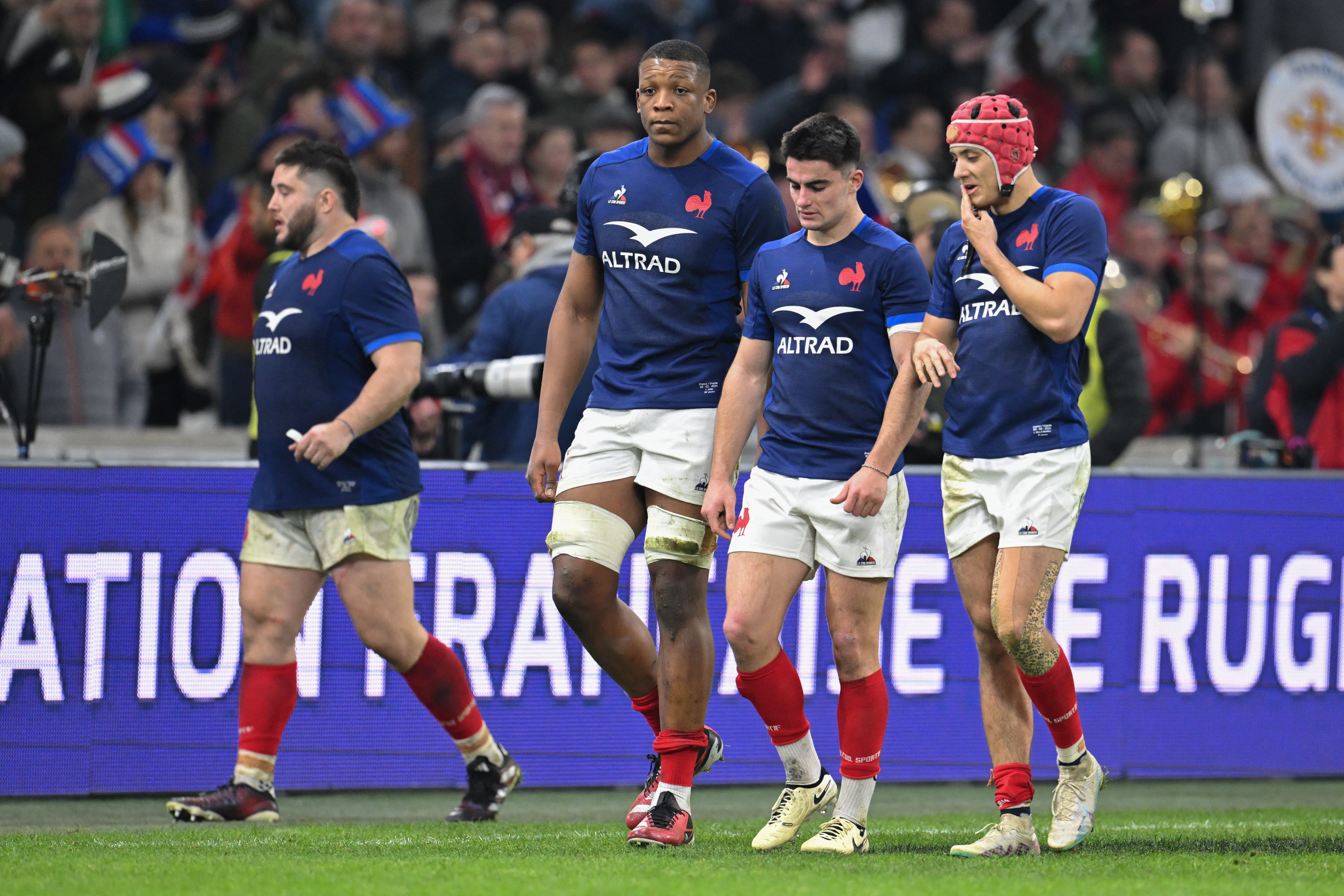France given warning after ‘masters’ Ireland expose deeper issues
Les Bleus coach Fabien Galthie could not analyse his side’s shortcomings in the immediate aftermath of Friday’s 38-17 drubbing, with concerns extending beyond the lines of the Stade Velodrome pitch after an agonising end to last year’s World Cup cycle

Your support helps us to tell the story
From reproductive rights to climate change to Big Tech, The Independent is on the ground when the story is developing. Whether it's investigating the financials of Elon Musk's pro-Trump PAC or producing our latest documentary, 'The A Word', which shines a light on the American women fighting for reproductive rights, we know how important it is to parse out the facts from the messaging.
At such a critical moment in US history, we need reporters on the ground. Your donation allows us to keep sending journalists to speak to both sides of the story.
The Independent is trusted by Americans across the entire political spectrum. And unlike many other quality news outlets, we choose not to lock Americans out of our reporting and analysis with paywalls. We believe quality journalism should be available to everyone, paid for by those who can afford it.
Your support makes all the difference.Fabien Galthie didn’t want to talk about it. The France coach had sloped into the press conference room at the Stade Velodrome, evasive eyes flickering beneath those familiar thick-rimmed glasses as Galthie readied himself for the questions he knew had to come.
“This is not the time for reflection,” Galthie stressed after the heaviest defeat of his time in charge, a 38-17 drubbing by Ireland to kick off the Six Nations. “There is too much disappointment to be lucid in the analysis. There are too many things to review, to share.”
Friday night was bad from France, even before Paul Willemse’s sending-off. The weight of the occasion and oomph of the Marseille crowd seemed to enervate rather than energise the home side, the cauldron bubbling but never boiling with Les Bleus never providing enough heat.
Where Ireland were smart and sure of themselves, France kicked poorly and defended loosely; several key players, perhaps most strikingly Jonathan Danty and Gael Fickou, looked some way short of sharpness. The French lineout capitulated, and they struggled to adjust at the breakdown, allowing Ireland the brisk ball they thrive upon. Both coaches played down the idea that this represented a shot at some semblance of World Cup redemption, but where Ireland seemed to channel the hurt effectively, France’s stumbles suggested lingering sore heads.
The temptation is to overreact. It did not take long for the French press to suggest that this was a showing that harkened back to the dark old days before Galthie’s arrival, replete with the moments of madness that came to typify an entire era of French rugby. Yet this is just the first match of a long championship, and an encounter between the two most complete teams in Europe – Ireland, it is worth remembering, are a phenomenal side who played much of the match a man to the good.
“We prepared over the last fortnight with precision and intensity, imagining our scenario,” Galthie suggested afterwards. “But this scenario is part of this sport. Ireland played the match, we played with 14.
“The script didn’t allow us to go where we wanted. The attacking performance was not there. We had prepared to increase the speed to dominate the collisions and increase the intensity. Ireland are the masters of the subject, and playing with 14 didn’t help us either. We need to raise our game.”

To dismiss the result entirely as some sort of aberration would be foolish, though. This defeat followed a World Cup finish that fell some way short of expectations, however fine the margins in the South Africa quarter-final defeat. Galthie has perhaps been fortunate that he has not come under more scrutiny, with much of the French public choosing to put pins into their Ben O’Keeffe voodoo dolls rather than looking for limiting factors beyond the referee.
That does not mean that the head coach’s position is entirely secure, though. The home World Cup was the culmination of four years of an unprecedented joined-up approach from all involved in French rugby, the Top 14 clubs uniting behind the national team to chase a common goal. Galthie was afforded extraordinary access to a large group of players each campaign, allowing him to build cohesion. That is no longer the case, while the squad has also had to endure a rigorous club schedule since returning from the World Cup.
Perhaps this explains why the French connection was lacking in Marseille on Friday night. The theory was that France were well-placed to keep on trucking across the next four years having only lost a few figures post-World Cup. Antoine Dupont’s absence is significant – replacing the best scrum half the game has ever seen is impossible – but this is not a French side in transition. The lack of leadership apparent on the pitch was striking for a side no longer in a development phase.

Which all rather leaves France in an interesting spot. Galthie was criticised for not doing more media activity in the wake of the World Cup, but striking comments were made by his new boss Florian Grill, elected president of the French rugby federation (FFR) last June. The thought was that France were in fine financial fettle, aided by a home tournament and the economic heavyweight that is the Top 14.
That is not the case, Grill explained to L’Equipe in December, revealing an operating deficit of around €40m (£34m) across the last two years. The figure for 2023/24 could be as high as €24m (£20.5m), the situation having been exacerbated by the Stade de France’s unavailability.
It has left the FFR in cost-cutting mode: the chartering of flights abroad has reportedly been axed, while higher-end hotels look to be out, too. Where in the past few years, France have ventured to the sunny south to train ahead of the Six Nations, the national side was based at their Marcoussis facility in the Paris suburbs ahead of the tournament. The training base is impressive but perhaps carries a staleness that extended into the French performance.

Now, there is every chance that France still go on to contend this Six Nations. Galthie suggested that changes would be minimal for next week’s trip to Murrayfield, his squad in theory better for this scarring experience.
But it is incredible how quickly the narrative can swing – after four years of world-leading work in building quality and quantity on and off the pitch, the complex French rugby ecosystem is now seemingly fragile again. Could Galthie’s ancien regime yet be ended by the guillotine’s fall? Such talk is hugely premature but French rugby has significant questions to answer again.



Join our commenting forum
Join thought-provoking conversations, follow other Independent readers and see their replies
Comments